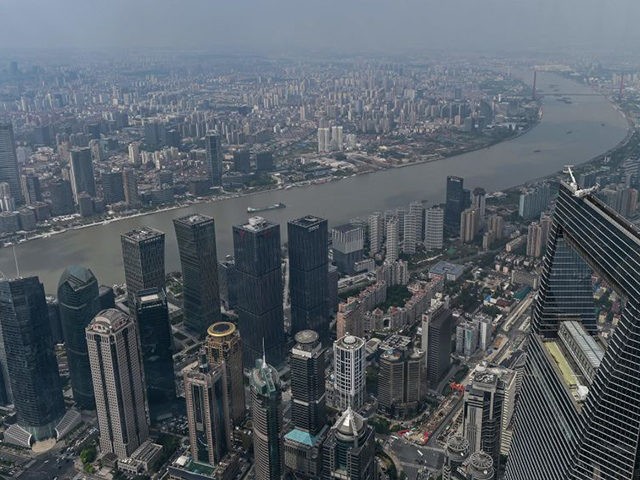Thousands of temporary workers protested outside the Shanghai factory of Pegatron on Saturday, angered by a plan to transfer employees to a different city and terminate those who refused.
Pegatron is a Taiwanese-owned company that supplies iPhones to Apple, which placed the company on probation last month for violating its supplier code of conduct.
Radio Free Asia (RFA) summarized the dispute Monday:
The protest came after Pegatron tried to transfer thousands of workers from its Shanghai factory to another facility at Kunshan in the eastern province of Jiangsu.
Those who refused the transfer would be fired, and workers fired for refusing the offer wouldn’t be eligible for their share of finders’ fee commission usually shared between recruitment agencies and workers, protesters told RFA.
Such fees form a substantial part of temporary workers’ overall remuneration package, with a worker set to accumulate 11,000 yuan in such payments after 55 days working at Pegatron, they said.
According to lawyers and labor activists who spoke to RFA about the dispute, Apple suppliers like Pegatron compete fiercely for temporary workers to fulfill a year-end production crunch that begins each September. The workers are offered high salaries and bonuses, but their contracts often include “trap clauses” that allow the employers to relocate them as needed, with substantial penalties for those who refuse.
Lawyer Wang Shengsheng explained Chinese courts generally favor management in labor disputes, and workers have trouble organizing because “labor unions independent of the ruling Chinese Communist Party (CCP) are rapidly suppressed, and media are only allowed to report positive news about government achievements.”
Apple suspended new business with Pegatron and put the company on probation in November for violating Apple’s labor code by requiring student employees in China to work nights and overtime. Apple said Pegatron executives “went to extraordinary lengths to evade our oversight mechanisms” and “falsified paperwork to disguise violations of our code.”
Another Apple supplier in Asia, a Taiwanese company called Wistron that produces iPhones at a factory in India, was placed on probation Monday for violating the supplier code of conduct. Angry Wistron employees rioted outside the plant in India two weeks ago to protest unpaid wages and other abusive practices.
TechRadar noted on Monday that Pegatron, undaunted by its controversies in China, is gearing up to expand operations in India — and possibly grab some of Wistron’s share of Apple business. Another Taiwanese-owned supplier for Apple with a history of labor problems, Foxconn, is also considering plans to expand one of its iPhone plants in India.
The implication drawn by many analysts is that Wistron’s labor dispute was much more serious than any problems encountered by Peagatron or Foxconn — or perhaps more to the point, Apple management is more severely displeased with Wistron.
“The (Wistron) incident has made global headlines, and China has tried to project it as an example to other firms looking to relocate to India. It was easy for Wistron to find a fall guy, but there is a lack of clarity in the steps Wistron will initiate from Taiwan to restructure teams following the incident. No one knows what the restructuring will look like, and only then can the company start planning for its future in India,” an unnamed source told Mint on Monday. The “fall guy” comment was a reference to Wistron executive Vincent Lee, who was terminated after an internal investigation of the labor dispute in India.
Apple’s probation plans for Wistron and Pegatron are reportedly putting pressure on the iPhone supply chain, especially the new iPhone 12 product line. There were warnings in November that a shortage of the chips that manage iPhone power consumption could make it difficult for Apple to meet holiday demand, although industry analysts thought the situation could instead lead to a shortage of other electronics dependent on those chips because Apple would use its clout with suppliers to fulfill its needs.

COMMENTS
Please let us know if you're having issues with commenting.